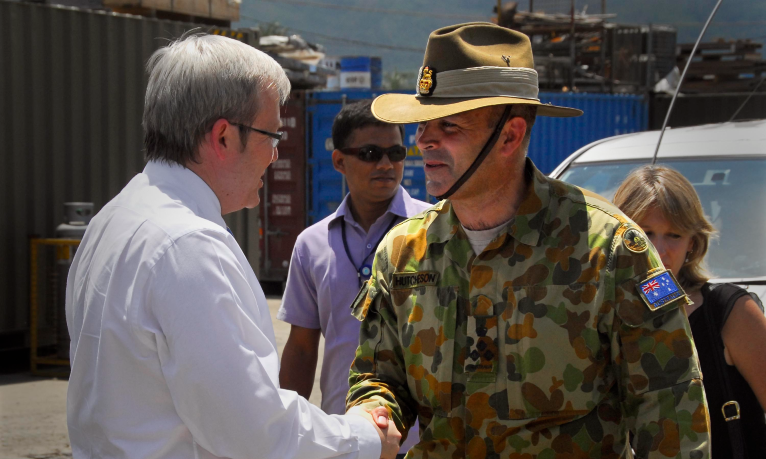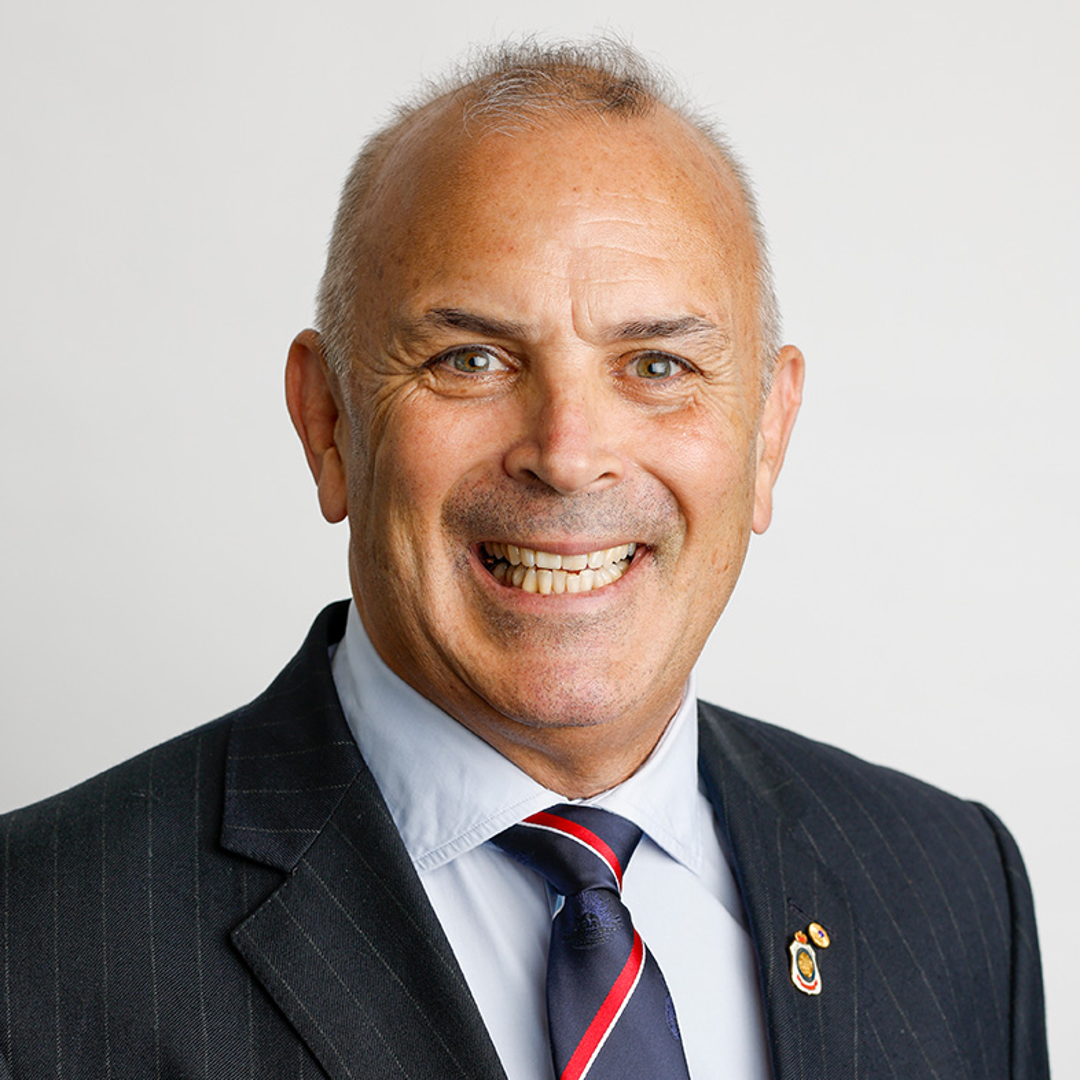What I wish I’d known: John Hutcheson

John Hutcheson, Deputy Chair of the RSL NSW Board of Directors, shares what he’s proudest of achieving during his tenure and why nominating for a board position is professionally invaluable.
At a glance:
- After 32 years in Defence, John Hutcheson joined the RSL NSW Board of Directors in 2019 while pursuing part-time business prospects.
- Personal highlights of his tenure include the implementation of the RSL NSW Strategic Plan 2021-26 and the rollout of Veteran Wellbeing Centres.
- Hutcheson says the professional and personal development are well worth the time commitment.
- Peer mentorship and training opportunities are available from the start of a director’s tenure.
The RSL NSW Board of Directors election is a chance to help guide the future of RSL NSW. Contribute to the implementation of the RSL NSW Strategic Plan 2021-26 while building your leadership and executive decision-making skills.
John Hutcheson AM served for 32 years in the Australian Army, including as commander of an infantry battalion and on two operational joint task forces, and transitioned out in 2014. He joined the RSL NSW Board of Directors as Deputy Chair in 2019, and is a member of the North Bondi RSL sub-Branch.
Hutcheson shares what he’s proudest of achieving during his tenure and why a board position is an invaluable professional opportunity regardless of where nominees are at in their career.
Growth and reform
During my 32 years in the Army, I had the opportunity to get a wide exposure to and understanding of the ADF as an organisation. I received operational experience while building my understanding of the needs of veterans and their families.
After transitioning out in 2014, I became the CEO of Legacy Clubs Services. I did that for six years. And for the past two years, I’ve been running a financial services and mortgage practice in a part time role.

My time on the RSL NSW Board of Directors has given me a good appreciation about the size and goodwill of the organisation, in particular the level of engagement of its members.
The major highlight for me is the hard work we put into the RSL NSW Strategic Plan 2021-26, and at the same time seeing its initiatives being rolled out and the successful outcomes of those initiatives for the veterans and families the plan is designed to benefit.
This includes the growth of RSL LifeCare Veteran Services, in particular the rolling out of the drop-in Veteran Wellbeing Centres, now referred to as Veterans’ and Families’ Hubs, across the state. And this is just the start – there are three centres at the moment and there are three more planned.
The second highlight, of course, is the reform of all the governance processes inside the organisation to assist members at a local level, so they can focus less on administration and more on looking after veterans in their communities. We’re striving to make it easier and simpler for sub-Branches to provide meaningful support and services.
“The RSL NSW Board is very collegial and has a diverse range of skills and experiences, which reflects the membership of the organisation.”
Working in a team
The key point with any change process is being able to maintain lines of communication to encourage change inside an organisation and to lead a team to actually make a difference. In any leadership role, that’s what you’re trying to achieve.
The RSL NSW Board is very collegial and has a diverse range of skills and experiences, which reflects the membership of the organisation. Having a board structure that includes two independent directors who are not members of the organisation allows us to fill some of those gaps with unique expertise that might be missing from the board’s skill composition.
There’s always a lot of engagement and discussion among board members about initiatives or ideas that are going ahead. The wellbeing of veterans and their families drives all our decision-making.

What I’ve learned and achieved
One of the things I learned when I joined the board was just how much is being done by RSL NSW in the background. In particular, I hadn’t really appreciated the work of ANZAC House and the commitment of members to the League.
A big part of the Strategic Plan is about communication and informing members of the good work that is done to offset negative comments that have emerged in the wake of the various Royal Commissions.
“Education and peer mentorship are provided to you at the start of your three years on the board, setting you up for success.”
The reason why someone might want to become a director, join a board or get involved is to actually make a difference. They want to challenge the sacred cows that have been in place for a long time. And you can only do that by being part of the decision-making process – or providing advice to the decision-making process – to guide the strategic direction that you want to take the organisation.
An invaluable opportunity
Being a board director allows you to make a difference and build a foundation for your future career goals. Over the three years of a board director’s term, you’re exposed to how people at a strategic level think and do business, whether that’s around corporate governance, business processes or risk management. You can only grow from that experience.
It improves your strategic and business acumen. And you can apply those learnings to other parts of your working life, such as in your job at sub-Branch, if you’re running your own business, or with other board opportunities. Particularly if you’re a bit younger and you work in middle management, this opportunity can really enhance your confidence.
There are a number of people on the board who can become your own personal mentors. If you come onto the board as a director you will also be invited to complete training courses to further develop your professional skills and enable your success in the role.
Education and peer mentorship are provided to you at the start of your three years on the board, setting you up for success.
Join the RSL NSW Board of Directors to help sub-Branches do more effective work. Nominations open on 18 July. Ask your sub-Branch to update your contact details in the sub-Branch Portal to receive an email when nominations open.






